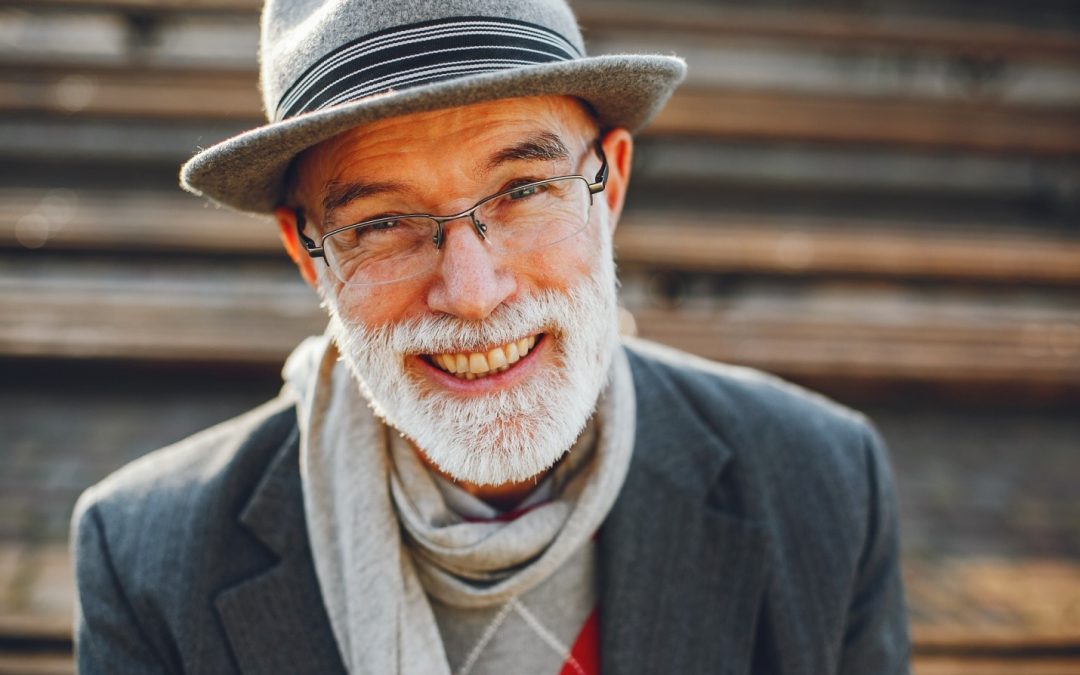Older adults, especially over the age of 50, are more susceptible to health problems. One of the leading health concerns among older adults is oral health.
According to research data from a survey, more than 75% of adults over age 60 have only a portion of their teeth left.
Here are a few frequently asked questions that older adults might have about dental health:
What Are the Dental Problems That Come With Aging?
Many age-related health problems might deteriorate your dental hygiene. Some of them are as follows:
- A few medications can lead to a dry mouth. This, in turn, makes you more prone to tooth decay, especially on root surfaces. Saliva helps provide a protective layer that flushes away bacteria and chemicals, and since there is less saliva produced when you have a dry mouth, you are more prone to dental caries and gum diseases.
- Another common problem related to aging is gum recession, which exposes the vulnerable root surfaces that do not have the protective coating of enamel.
- Persons with diabetes face some additional challenges and require individualized care. The higher your blood sugar, the higher your risk for oral disease.
- Common problems associated with aging are loose teeth, missing teeth, worn out teeth, gum disease, etc.
Can Older Adults Get Braces?
There is no age limit for correcting misaligned teeth. Braces for seniors are quite common these days.
Braces treatment can help correct misaligned teeth and other imperfections that can lead to increased cavities, plaque buildup, and gum disease.
Can Older Adults Get Dental Caries?
Yes, there are a lot of factors that can put older adults at the risk of dental caries. This can be caused by an assortment of factors starting from improper care of dentures, lack of oral hygiene, etc.
Older adults can also lose out on having a proper oral hygiene routine because of arthritis, which might inhibit their ability to brush and floss properly. Decreased salivary flow due to dry mouth can also lead to dental caries.
What Are the Reasons for Loose Teeth in Older Adults?
Here are the top reasons for loose teeth in older adults:
- Loose teeth could be due to an injury to the jaw that might have caused teeth trauma.
- Gum disease, also known as periodontitis, can cause loose teeth. The symptoms of periodontitis include swollen, bleeding gums, which can cause teeth to weaken.
- Older adults can also experience loose teeth because of osteoporosis. This can cause your jawbones to weaken, and in turn, knock your teeth loose.
How Do Elderly People Brush Their Teeth?
Setting an oral hygiene routine is important for older adults. Here are a few tips to make sure you’re getting the most out of brushing.
- You don’t have to brush in the bathroom sink. You can easily instead complete the task at a table with a towel and a bowl of water. Think of what works best, if you don’t have the energy to stand.
- Use a pea-side amount of toothpaste to help prevent tooth decay. If you struggle with spitting and swallowing, remember to wash with water.
- Pick a toothbrush that has soft bristles and is easy to hold.
- Also, remember to remove your dentures or partial dentures before brushing.
Just because older adults are more prone to dental problems, doesn’t mean you have to experience them. You can avoid dental problems by having a set dental routine in place.
Author Bio:
Creating perfect smiles is what Dr. Satish Pai is committed to. An orthodontist by profession, he believes that a perfect smile is a powerful part of a person’s personality. When he is not working hard on perfecting his patients’ smiles at Putnam Ortho, he is busy writing engaging articles about everything related to healthy and perfect smiles. His other passions include golf, yoga and surfing. Spending time with his family always brings a smile on his face.
LEARN TO LOVE YOUR LIFE AGAIN
 Do you feel like you need to hit the REFRESH button on your life? Download our free guide and begin to create your best life yet!
Do you feel like you need to hit the REFRESH button on your life? Download our free guide and begin to create your best life yet!



